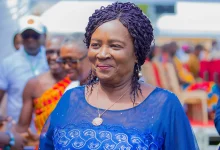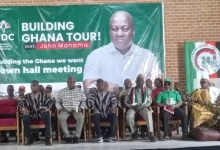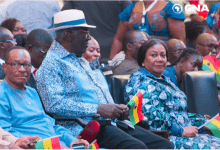Care for Free and Fair Elections Ghana (CARE GHANA), a voting right organisation, has urged the Electoral Commission (EC) to put in place measures to curb the surge in rejected ballots in national elections.
It said since the beginning of the Fourth Republic, records from EC showed 1,498,085 ballots had been rejected in eight national elections and voters had been unable to cast ballots the right way, making it tough for choice of the electorates to be known.
According the organisation, it precipitated growing concern about surge in ballot papers rejected in national elections and irrespective of progress made by introduction of reforms, rejected ballots continued to pose threat to electoral advancement and quest for democratic consolidation.
In a statement issued in Accra, David Addo, Executive Director of Care Ghana, said for instance, 149,813, 111,108, and 119,372 ballots were rejected in 1992, 1996 and in 2000 elections respectively, while in 2004, 2008, 2012 and 2016 elections, rejected ballots were 188,123; 205,643; 243,280; and 167,349 respectively.
It said occasionally, the rejected ballots amounted to colossal percentages of votes in excess of total number of votes garnered by all minority political parties,in 2020 elections for instance, 313,397 rejected ballots were recorded, thereby causing huge financial loss of GH¢14,116,967 to the state and rejected ballots recorded in 2020 presidential race was higher in terms of absolute figures.
The statement said rejected ballots in 2004 elections constituted 2.13 per cent of 8,625,785 total votes cast, far in excess of 165,375 votes constituted 1.9 per cent and had it not been for rejected ballots, Professor Atta Mills of the National Democratic Congress (NDC) or Nana Addo Dankwa Akufo-Addo of the New Patriotic Party (NPP) could have won the first round of the 2008 elections.
“Clearly, if rejected ballots are a political party, they can boast of steady increase in popularity ahead of minority parties, it is our considered view, effective and efficient collaboration between EC and National Commission for Civic Education (NCCE) to provide proper public education and sensitisation will improve electorates’ ability to vote and vote well.
“Abolishing use of ink in voting will eliminate incidence of rejected ballots occasioned by spillages or inaccurate folding of ballot sheet and since the country returned to electoral democracy, votes cast by some electorates have been rejected in elections which continue to maintain its position representing third force behind NDC and NPP,” the statement said.
It said elections in 2024 was critical, hence every ballot cast by electorates must be counted consequently, effective and efficient collaboration between EC and NCCE was required to educate, sensitise and enlighten both new and old voters ahead of 2024 general election to, if not eliminate, mitigate number of rejected ballots infuture elections. -3news.com






